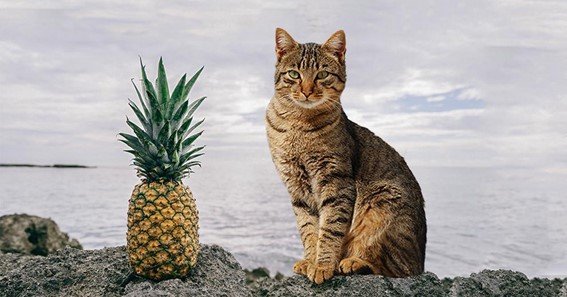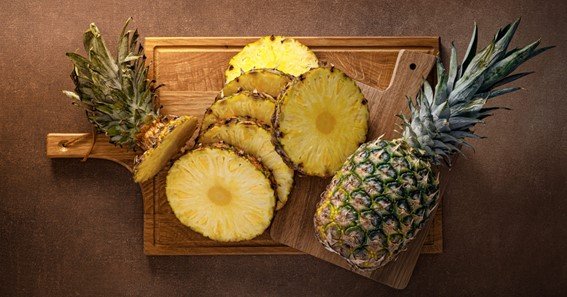As a cat owner, it’s natural to wonder whether some of the plants or fruits in your home are safe for your feline companion. One common question many pet parents have is, can cats eat pineapple leaves? Pineapple is a tropical fruit that is enjoyed by many, but when it comes to cats, things are a bit different. In this article, we’ll explore whether pineapple leaves are safe for cats, the potential health risks, and what to do if your cat decides to chew on one.
Can Cats Eat Pineapple Leaves?
The short answer is no, cats should not eat pineapple leaves. While the flesh of the pineapple in small amounts may be safe for cats, the leaves are a different story. Pineapple leaves for cats can pose several health risks due to their tough texture and possible toxicity. Cats are curious creatures, and they might be tempted to chew on leaves, but pineapple leaves can cause more harm than good.
Is Pineapple Leaf Safe for Cats?
So, is pineapple leaf safe for cats? The answer is no. Pineapple leaves contain certain compounds that can be toxic to cats. Ingesting these leaves can lead to gastrointestinal discomfort, such as vomiting or diarrhea. Additionally, the tough and spiky texture of the leaves can irritate your cat’s mouth and throat, making them a choking hazard or causing internal damage if swallowed.
Pineapple Health Risks for Cats
When it comes to pineapple health risks for cats, it’s essential to remember that cats are obligate carnivores. Their digestive systems are designed primarily for processing meat, and they do not require fruits or plant matter in their diet. Chewing on pineapple leaves for cats can lead to a variety of issues, including:
- Digestive Problems: Pineapple leaves are tough to digest and can lead to stomach upset, vomiting, or diarrhea in cats.
- Choking Hazard: The spiky, fibrous nature of the leaves can get stuck in your cat’s throat, posing a significant choking risk.
- Toxicity Concerns: While not highly toxic, pineapple leaves may contain compounds that can irritate your cat’s system, leading to nausea or discomfort.
Can Cats Digest Pineapple Leaves?
Can cats digest pineapple leaves? Not easily. Cats lack the enzymes necessary to break down fibrous plant material, making pineapple leaves difficult for them to digest. If your cat consumes a piece of pineapple leaf, it may pass through their system without causing significant harm, but the risk of digestive upset or obstruction is higher.
Safe Parts of Pineapple for Cats
While cats and pineapple leaves don’t go well together, some parts of the pineapple are safer. If you’re wondering about the safe parts of pineapple for cats, the flesh of the fruit (in small quantities) can be a harmless treat. Make sure the pineapple is fresh, peeled, and cut into small pieces, and avoid giving them the core or any leaves.
Should Cats Eat Pineapple Leaves?
In conclusion, should cats eat pineapple leaves? Absolutely not. Pineapple leaves are not safe for cats and should be kept out of their reach. While it may be tempting to share some of your fruit with your feline friend, it’s essential to know which parts of the pineapple are safe. Stick to small amounts of pineapple flesh and avoid the leaves, core, and skin.
FAQ
1. Can cats eat pineapple leaves?
No, cats should not eat pineapple leaves. They are difficult to digest and can cause choking, digestive issues, or discomfort.
2. Is pineapple leaf safe for cats?
No, pineapple leaves are not safe for cats due to their fibrous texture and potential toxicity.
3. What are the risks of cats eating pineapple leaves?
The main risks include digestive problems, choking hazards, and the possibility of toxicity from certain compounds in the leaves.
4. Can cats eat pineapple flesh?
Yes, cats can eat small amounts of fresh pineapple flesh, but it should be given as an occasional treat, not a regular part of their diet.
5. What are some fruits that are safe for cats?
Some fruits safe for cats in moderation include apples (without seeds), blueberries, and bananas. Always check for any potential allergies or health issues before feeding fruit to your cat.











